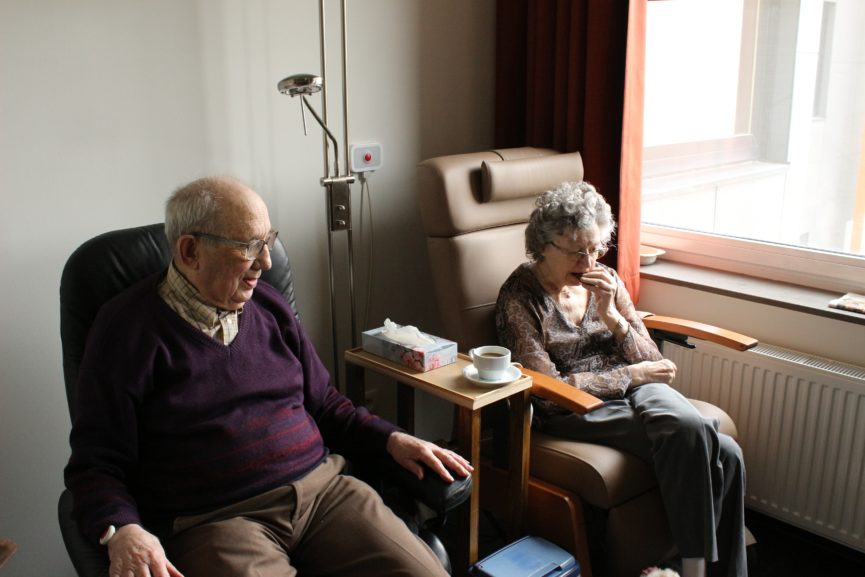ELDER ABUSE: THE STEADY RISE AND RED FLAGS OF FINANCIAL ABUSE.
There has been an alarming increase in referrals relating to financial and psychological abuse of the elderly since the Health Service Executive first published its report on elder abuse in 2008. The first report published in 2008 indicates that there were as many as 1840 referrals to the HSE relating to elder abuse. These figures have steadily risen since 2008 and in 2018 there were 3218 cases of elder abuse reported to the National Safeguarding Office representing an increase of 75% since 2008. The categories of abuse reported since the first report was published include, physical abuse, self-neglect, neglect, sexual abuse, psychological and financial abuse. The HSE National Safeguarding office is the main body responsible for all aspects concerning policy and practice relating to the safeguarding of vulnerable adults and publish yearly reports which detail the rate of referrals relating to elder abuse.
The Rise of Financial & Psychological Abuse of the Elderly
The figures indicate that cases relating to financial and psychological abuse of the elderly have risen significantly between 2008 and 2018. In 2008 the Health Service Executives’ report on elder abuse state that there were 294 referrals relating to financial abuse and 478 referrals concerning psychological abuse. In 2018 there were 1,218 referrals of financial abuse and 1,786 relating to psychological abuse. To put it another way there has been an increase of 274% between 2008 and 2018 of cases relating to psychological abuse and a rise of 451% in cases relating to financial abuse.
What are the red flags of financial abuse?
Financial abuse takes many forms but there are common patterns. The following are some of the indications of financial abuse which have been outlined in Ireland, the United Kingdom and the United States which include the following:
- A sudden change in banking practices, such as the withdrawal of large amounts of money
- The appearance of a new caregiver and/or relatives who though previously uninvolved appear to be living at the older person’s expense for example by not contributing to household expenses, rent or food
- Change in living conditions,
- A sudden inability to pay bills and a lack of amenities an older person could previously afford such as medical care, heating and food,
- Sudden changes to an older person’s will
- A sudden transfer of property to another relative or someone unconnected to their family
- Repeated and unexplained withdrawals from the older person’s bank account
- Stolen or the disappearance of important financial documents
- Forcing and misleading an older person into granting a power of attorney & unauthorised gifts
Who are the perpetrators of elder abuse?
The predominant perpetrators are those in positions of trust, they are the immediate family members and care givers of the elderly person. The report published by the Health Service Executive in 2008 indicated that 43% of those reported were the sons and daughters of the elderly person and 17% were the elderly person’s partner, husband or wife. In 2018, the percentage of immediate family members reported to the National Safeguarding Office rises to 70% in cases of persons older than 65. Other perpetrators of alleged abuse include care givers, neighbours, staff and other family members not constituting immediate family. In a report prepared by the Department of Justice in the United States in 2011 titled “Financial Abuse of the Elderly v. Other Forms of Elder Abuse: Assessing their Dynamics, Risk Factors, and Society’s Response” the following common characteristics of the perpetrators were identified which although not exhaustive is indicative:
- (Male 62%)
- (Related to the Elderly Person 68%)
- (Unmarried 70%)
- (Perpetrator has children 70%)
- (Unemployed 54%)
- (Alcohol or Substance Abuse 50%)
What steps have been taken to address elder abuse in Ireland?
The Adult Safeguarding Bill 2017 which can be viewed in its current format at www.oireachtas.ie is currently before Seanad Éireann. The Bill aims to empower the National Adult Safeguarding Office to investigate allegations of abuse concerning vulnerable adults including the elderly. Financial abuse has been specifically outlined in the bill as an area causing concern and the Bill defines financial abuse as “an offence against the adult at risk…………or exploitation or undue pressure in connection with wills, property, inheritance and other financial transactions”. The bill includes provisions which allow the National Adult Safeguarding Office to appoint persons to enter onto premises to investigate allegations of abuse. If it is determined that an offence has been committed the person so appointed may refer the matter to An Garda Síochána.
Should you wish to read additional information on the above matters it is recommended that you visit https://www.safeguardingireland.org/ or www.hse.ie which promotes the safeguarding of vulnerable adults from all forms of abuse. In the event that you or someone close to you is or was the subject of abuse then you may be entitled to pursue a claim for compensation for the loss suffered both in terms of financial loss and for the psychological damage that arises as a consequence of such abuse. Should you wish to discuss any of the above matters, please get in touch by contacting us at (01) 833 8147 or alternatively you can email us at [email protected]

